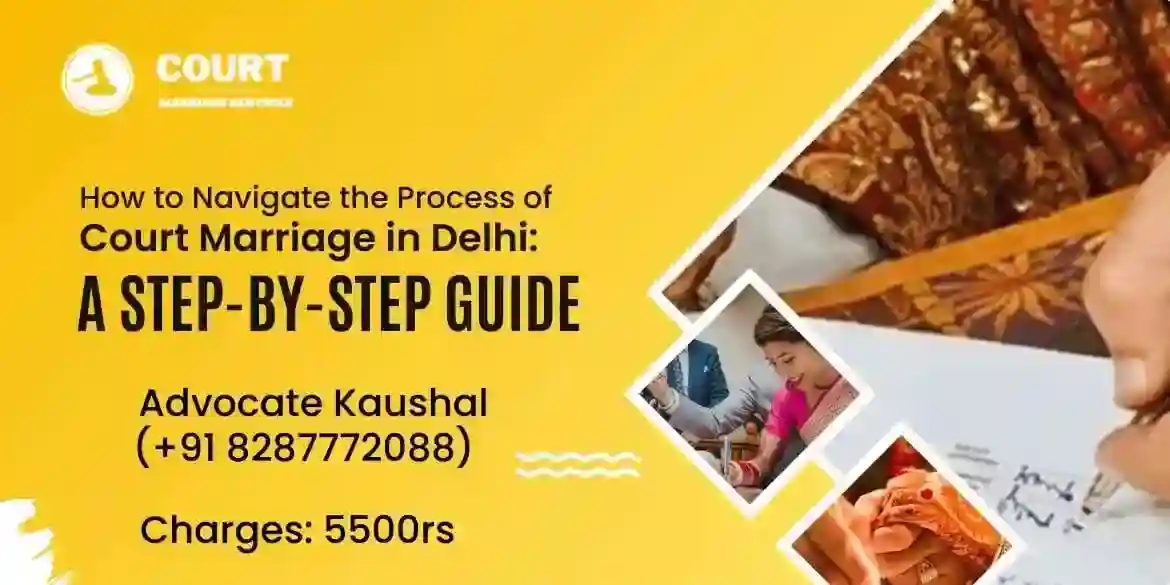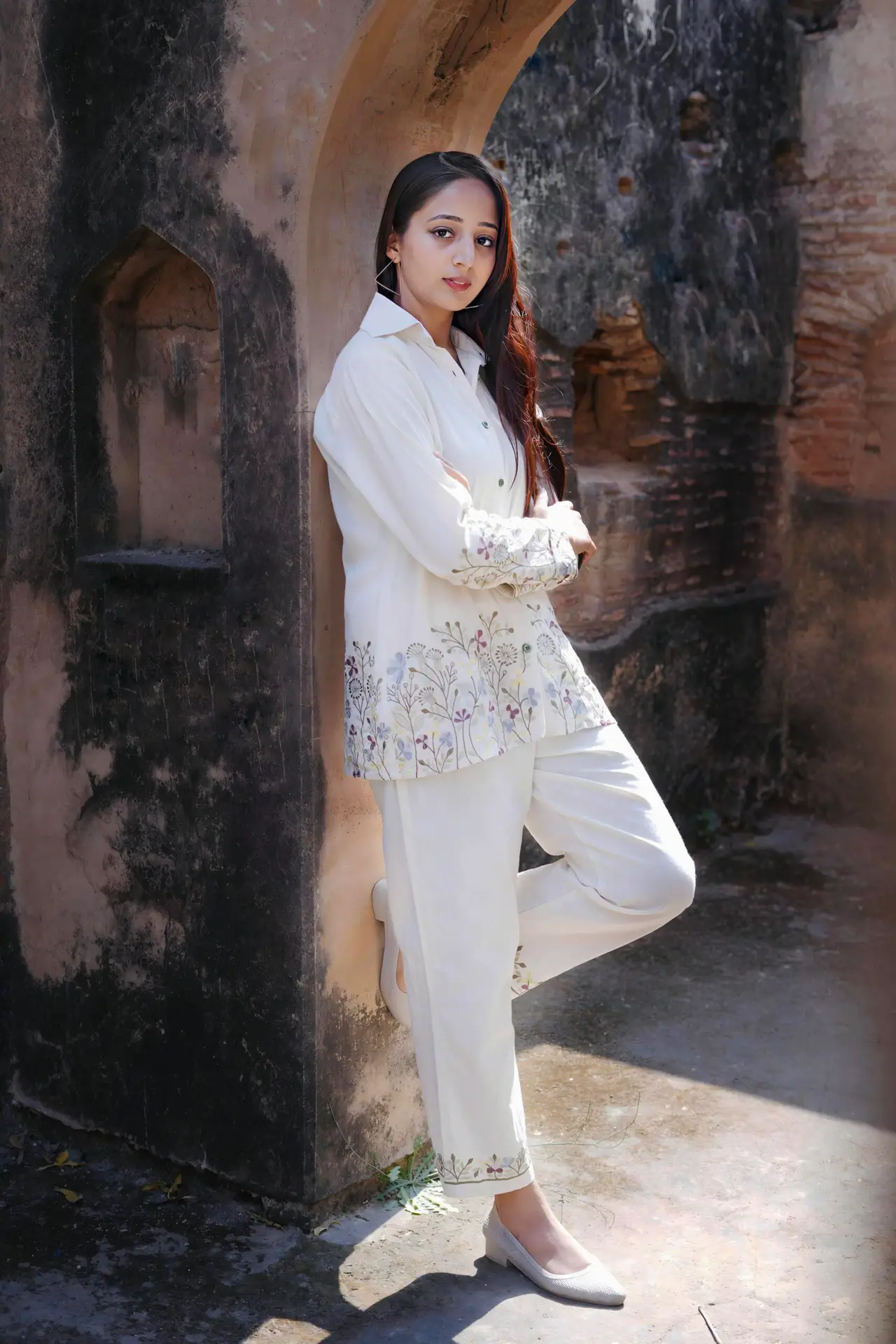Process of Court Marriage in Delhi – Step-by-Step Legal Guide
The Process of Court Marriage in Delhi is a straightforward yet legally structured way for couples to solemnize their marriage under the Special Marriage Act, 1954. This method offers legal recognition and protection to couples irrespective of their religion, caste, or nationality. Whether you are a resident of Delhi or planning to get married here, knowing the process in detail can save you time, money, and unnecessary stress.
In this comprehensive guide, we will cover eligibility criteria, required documents, legal procedures, timelines, and other essential aspects of the process of court marriage in Delhi.
Why Choose Court Marriage in Delhi?
Many couples prefer court marriage due to its simplicity, legality, and inclusivity. Unlike traditional marriages, which may involve elaborate ceremonies, court marriage focuses on the legal union. This makes it ideal for inter-religious couples, couples seeking privacy, or those looking for a quick and cost-effective marriage option.
The process of court marriage in Delhi ensures:
- Legal validity across India and abroad.
- No religious restrictions.
- Minimal costs compared to traditional weddings.
- Protection under the Special Marriage Act.
Eligibility Criteria for Court Marriage in Delhi
Before initiating the process of court marriage in Delhi, couples must ensure they meet the legal requirements:
- Age Requirement:
- Groom: Minimum 21 years.
- Bride: Minimum 18 years.
- Marital Status:
- Both parties must be unmarried, divorced, or widowed at the time of marriage.
- Mental Capacity:
- Both should be of sound mind and capable of giving valid consent.
- Prohibited Relationship:
- The couple must not fall within the prohibited degrees of relationship unless permitted by their custom.
Documents Required for Court Marriage in Delhi
Collecting the correct documents is an important part of the process of court marriage in Delhi. You will generally need:
- Proof of Age (Birth certificate, passport, or school leaving certificate).
- Address Proof (Aadhar card, voter ID, passport, or utility bills).
- Passport-sized Photographs (Usually 4 each).
- Affidavit stating date of birth, marital status, and nationality.
- Death Certificate/Divorce Decree if applicable.
- Residential Proof of at least one party in Delhi.
- Notice of Intended Marriage form signed by both parties.
Step-by-Step Process of Court Marriage in Delhi
The procedure for court marriage involves several stages under the Special Marriage Act:
1. Filing the Notice of Intended Marriage
The first step in the process of court marriage in Delhi is to submit a notice to the Marriage Registrar of the district where at least one partner has resided for a minimum of 30 days prior to filing.
2. Publication of Notice
The registrar will display the notice on the office notice board for 30 days to allow for any objections.
3. Objection Period
If any objections are raised during this period, the registrar investigates them within 30 days. If no valid objection is found, the process moves forward.
4. Solemnization of Marriage
After the waiting period, both parties, along with three witnesses, must appear before the Marriage Officer to sign the declaration.
5. Marriage Certificate Issuance
Once solemnized, the registrar issues the marriage certificate, making the union legally valid.
Timeframe for Court Marriage in Delhi
The process of court marriage in Delhi typically takes around 30 to 35 days due to the mandatory notice period. However, this can vary depending on the registrar’s schedule and any objections raised.
Benefits of Understanding the Court Marriage Process
Having a clear understanding of the process of court marriage in Delhi helps in:
- Avoiding procedural delays.
- Preparing all required documents in advance.
- Ensuring compliance with legal requirements.
- Making informed decisions regarding timelines.
Tips for a Smooth Court Marriage in Delhi
To make the process of court marriage in Delhi hassle-free:
- Double-check all documents before submission.
- Ensure correct information in affidavits.
- Coordinate with your witnesses in advance.
- Keep multiple photocopies of all documents.
- Arrive at the registrar’s office early on the marriage day.
Legal Provisions Under the Special Marriage Act, 1954
The Special Marriage Act, 1954, governs the process of court marriage in Delhi. This law ensures that marriages between people of different faiths or communities are legally recognized without the need for religious conversions or ceremonies. It also offers protection to the rights of both spouses, including property rights and inheritance rights.
Differences Between Court Marriage and Traditional Marriage
While traditional marriages often involve religious rituals, the process of court marriage in Delhi is purely legal in nature. This means:
- No religious ceremonies are mandatory.
- The marriage is registered and certified by a government authority.
- The procedure is uniform for all religions and communities.
Costs Involved in Court Marriage in Delhi
The process of court marriage in Delhi is relatively affordable. The government fee for filing the notice and solemnizing the marriage is minimal. However, additional costs may arise for affidavits, photographs, and documentation.
Common Misconceptions About Court Marriage
Many people assume that the process of court marriage in Delhi is complicated, but in reality, it is designed to be straightforward. Misconceptions include:
- It takes months to complete – In fact, it usually takes just over a month.
- It is only for interfaith couples – It is open to all eligible couples.
- It lacks recognition – It is fully recognized by law in India and abroad.
Role of a Court Marriage Advocate
A Court Marriage Advocate Kaushal can simplify the process of court marriage in Delhi by:
- Assisting with form filling and documentation.
- Ensuring affidavits are correctly drafted.
- Guiding couples through the notice period.
- Representing couples in case of objections.
Professional guidance often prevents delays and ensures smooth registration.
Conclusion
The process of court marriage in Delhi is an efficient, inclusive, and legally robust way for couples to formalize their relationship. By understanding eligibility criteria, preparing necessary documents, and following the legal steps, couples can complete the marriage procedure without unnecessary complications.
For those who value legality, simplicity, and inclusivity, court marriage in Delhi remains one of the best options. Whether you are planning your marriage soon or researching for the future, being well-informed ensures a stress-free experience.



